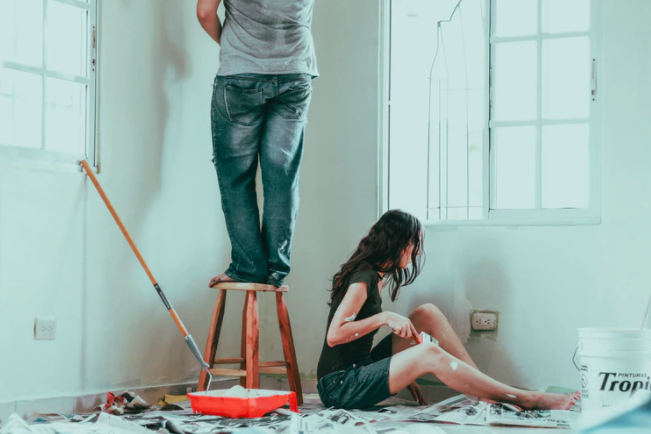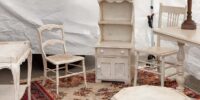Kristin is a writer and editor at Essay Roo and Big Assignments. She is also a contributing writer for online magazine and blogs, such as Study demic. As a marketing writer, she blogs about the latest trends in digital advertising and social media marketing.
Painting the walls can make your home stand out by looking more updated and kept. However, mishaps can happen even when you make the first stroke on one section of the wall. Therefore, it’s important to prepare yourself for a painting project by doing the following:
- Have the right materials handy
- Scrape off cracks and flakes
- Clean the walls
- Remove any mildew
- Mind the wallpaper, AND
- Prime the walls
With that said, there are 6 ways to better prep for any painting project that you do at home.
1. Have The Right Materials Handy
First, you need the right tools for the paint job. Materials include:
- Paint-can open
- Roller
- Roller covers
- Roller extension pole
- Stir sticks
- Primer
- Paint brushes (one brush for latex paint, another for oil-based paint)
- Drop cloth
- Paint tray, AND
- Gloves
When you have these materials handy, your paint job will be easier on you.
2. Scrape Off Cracks And Flakes
Cracks and flaking paint from walls can be annoying to come across, especially when it comes to painting. Whether these flakes and cracks were from overtime wear-and-tear, poor renovations, improper rearranging of furniture and other things in the home, or improper painting, these nuisances must go!
Before painting, make sure to spot any cracks and flaky areas. Then, be sure to it remove any flakes from the walls by either sanding or scraping them. “Although sanding is not a have-to every time you do a paint job, it’s still important to sand any rough patches that you come across before you start painting. Sanding down rough patches ensures that painting will go smoothly. To sand, use either sandpaper, a sanding block, or an electric sander. Afterwards, wipe away the dust with a damp cloth, and then let the sanded area dry” says Sara Kerry, a design blogger at Elite assignment help and UK Top Writers.
3. Clean The Walls
Clean walls are key in preparing a room for painting. While there is no best way to clean walls before painting, most walls can be washed using a sponge and warm water. For surfaces that have exposure to oil or grime, like kitchen walls, wash with a solution of water and grease-cutting detergent and follow up with clean water to remove any residual cleaning agent. Finish by wiping the walls with a damp cloth. Not waiting for the wiped areas to dry can cause your primer and paint to blister.
4. Remove Any Mildew
Besides any cracks and flakes, also be on the lookout for mildew. No matter which room you plan to paint in, chances are, you’ll run into mildew.
First, you should never paint over mildew. Otherwise, the painted mildew will grow through the applied paint, which can make cleaning and maintenance harder on you.
The good news is, when addressed in time, cleaning up mildew is easy. Just grab a sponge and a solution (¾ water and ¼ bleach), along with some gloves and goggles to protect your skin and eyes. After you apply the solution to the walls, let it set for a few minutes. Then, scrub the affected areas with a soft brush, and then rinse with clean water. Let the areas thoroughly dry before painting.
5. Mind The Wallpaper
If you have old wallpaper on the wall(s) that you want to repaint, then hold on a moment. First, it’s not recommended that you paint over wallpaper, because it’s texture can interfere with what you want the paint to do for your wall. Even if you use premium paint, it still won’t hide the wallpaper seams.
“If you want your old wallpaper to be removed before you start painting, consult a painting contractor to do it for you” says Alda Miller, a lifestyle blogger at Bestbritishessays and Revieweal.
6.Prime The Walls
Finally, it’s time to prime the walls. Paint primer serves as the foundation for the regular paint, and allows you to get the most out of the paint that you use. And, primer hides imperfections, while creating that smooth surface feel for when you’re painting.
So, don’t be afraid to start with primer to ensure that the rest of your paint job goes well without struggling to make the regular paint work for you.
Conclusion
Now, these are just 6 things to do before painting any of the walls in your home. However, these tips are essential to ensure that your next painting job goes well at execution. Painters may make mistakes, but that’s part of the process.
Good luck, and happy painting!
Need some extra help doing up the house?







Trackbacks/Pingbacks